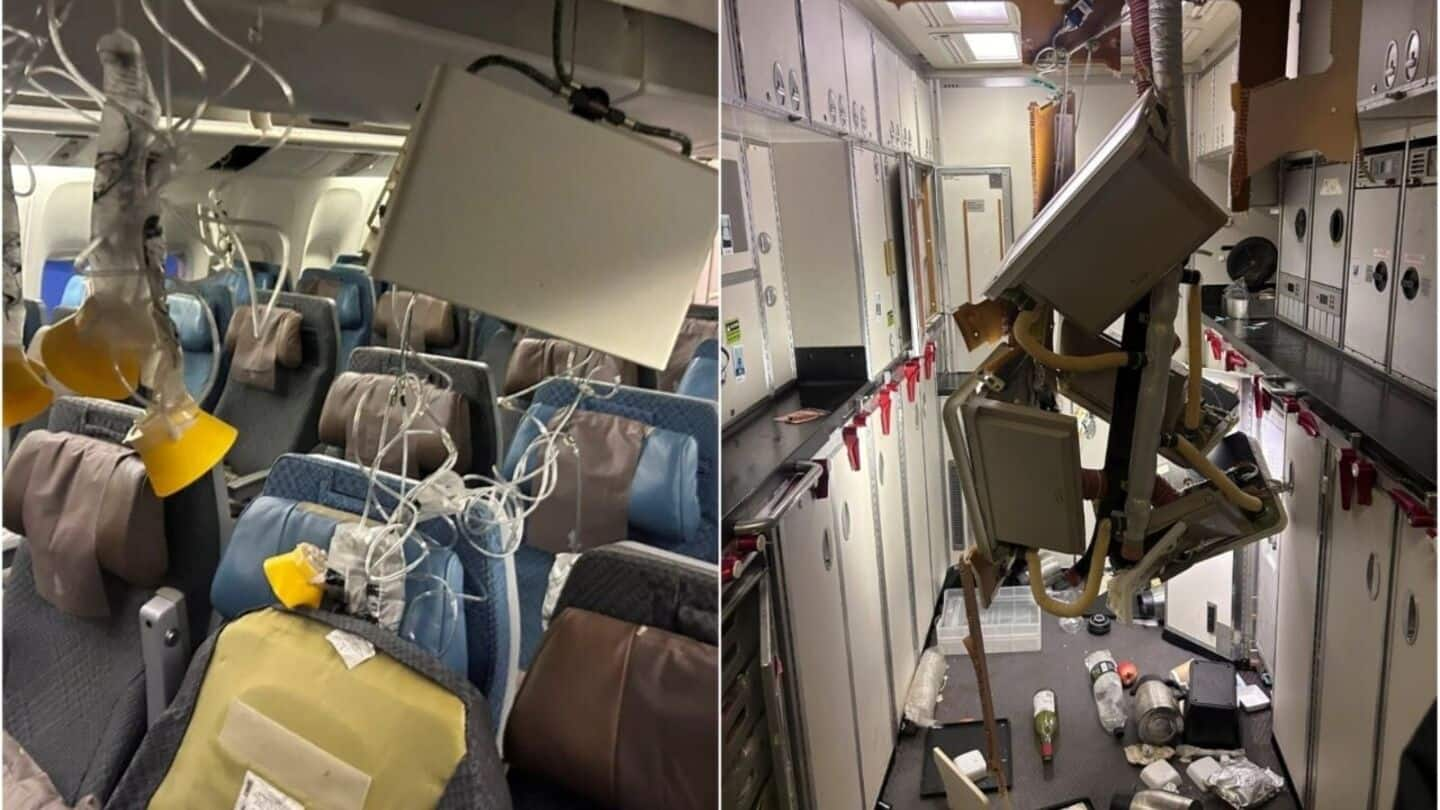
Singapore Airlines turbulence victims still suffering one year later
What's the story
A year after a harrowing incident of severe turbulence on Singapore Airlines Flight 321, many passengers are still grappling with the trauma, the South China Morning Post reported. The Boeing 777 was flying from London to Singapore when it encountered violent turbulence on May 21, 2024. The aircraft was forced to divert to Bangkok's Suvarnabhumi Airport due to the incident.
Passenger trauma
Turbulence incident leaves lasting impact on passengers
The turbulence left a British man dead and injured several others among the 211 people on board. The cabin was left in disarray with food and luggage strewn across aisles, oxygen masks deployed, and electrical panels dislodged. Medical teams in Bangkok treated injuries mostly involving the head or spine, with over a dozen requiring surgery.
Personal impact
Passenger recounts traumatic experience, ongoing recovery
Among those injured was New Zealander Philip Whitehead, who had just returned from the toilet when the turbulence hit. "There was no time to get the seat belt on, and I woke up on the floor in a pool of blood," Whitehead recalled. He suffered a broken neck and back and later underwent spinal surgery.
Recovery process
Ongoing medical evaluations and compensation efforts
Medical evaluations are still underway for the affected passengers as they continue to seek compensation from Singapore Airlines. The incident has also prompted Singapore Airlines to overhaul its safety protocols. A preliminary report by Singapore's transport ministry found that the jetliner dropped 54 meters (178 feet) in just 4.6 seconds due to rapid gravitational force changes, triggered by an "uncommanded increase in aircraft altitude and airspeed."
Compensation
$1 million compensation for PTSD patients sought
Passengers have since sought recompense for their ordeal. Carter Capner Law, an Australian law firm specializing in aircraft disaster claims, is spearheading attempts to obtain the compensation. The law company represents 11 passengers and is investigating claims for others who, although being physically unhurt, developed post-traumatic stress disorder (PTSD). Carter is claiming compensation of up to $1 million for PTSD patients.